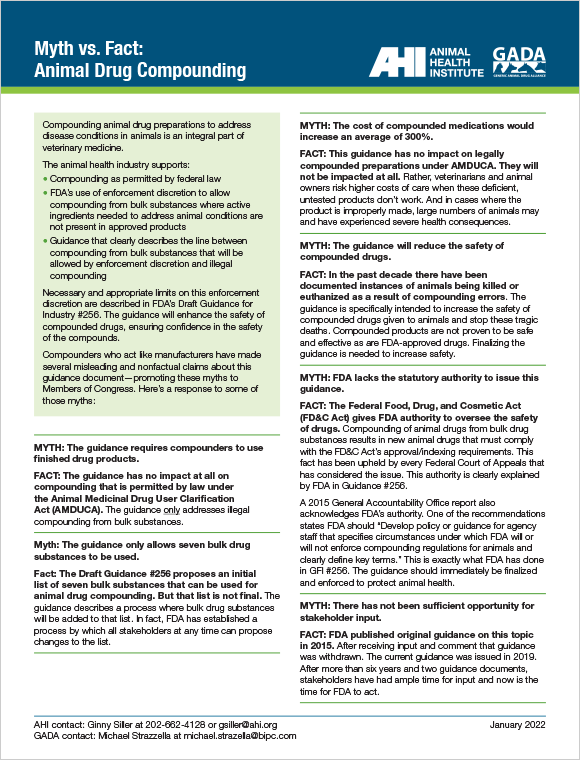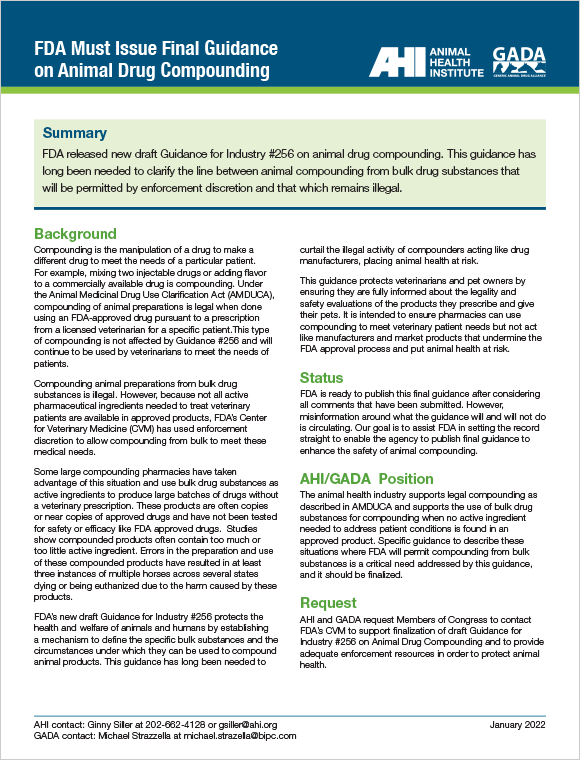Compounding is Permitted When…
Under federal law, compounding is permitted when:
- The health of an animal is threatened or suffering or death may result from failure to treat.
- It is performed by a licensed veterinarian or licensed pharmacist on order of a veterinarian within the scope of professional practice.
- There is no approved animal or human drug that, when used as labeled or in conformity with the extra label drug use regulations, will, in the available dosage form and concentration, appropriately treat the condition diagnosed.
- Preparations are compounded from FDA-approved animal or human drugs for individual patients.
Compounding is Illegal When…
Animal drug compounding from bulk active, or raw pharmaceutical ingredients is not legal. Nevertheless, FDA does exert what is called “enforcement discretion” to allow some animal drug compounding from bulk substances. This is generally necessary when there is a need for a specific active ingredient and there is no approved human or animal drug with that active ingredient. The animal health industry also recognizes and supports these limited exceptions to the law in the interest of patient health.
LEARN MORE
In recent years, however, compounding pharmacists have performed drug manufacturing under the guise of compounding. Using bulk substances, they have compounded preparations in large quantities and advertised them as cheap alternatives to approved drugs. They have compounded drugs that mimic those of FDA-approved drug products. This widespread illegal activity has resulted in animal deaths – including 21 polo horses in Florida in 2009 – and has undercut the FDA approval process. It is difficult to justify the expense of millions of dollars and many years to get a drug approved by FDA only to find compounders will circumvent the drug approval process and make it from bulk so they can sell it cheaply.
This activity places veterinarians, and more importantly their patients, at some risk. Animal drugs compounded from bulk substances are illegal and do not come with the proof of safety and efficacy that approved drugs do. Both published research and FDA inspection reports have documented inconsistencies in potency and amounts of active ingredient in compounded products as well as lack of sterility testing of these products.



